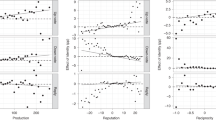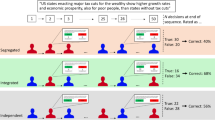Abstract
We examine some of the factors that might influence the quality of information produced in discussion groups on the internet, such as USENET and the WELL. In particular, we look at the impact of various different pricing structures, and compare regimes in which anonymity is enforced with regimes in which all contributors must identify themselves. Our main finding is that the flow of quality-weighted information within the group is maximized by a regime which front loads the cost of sending messages, and identification is required. If there is a positive spillover from the intra-group transmission of good quality information, however, benefiting society at large, then the social value of the flow of quality-weighted information may be maximized by a different regime, in which all replying is anonymous. Reputation effects play a key role in our analysis: posters who have sent high quality messages in the past are considered more likely to send high quality messages in the future, and are thus more likely to be taken notice of.
Similar content being viewed by others
References
M.O.L. Bacharach, Showing what you are by showing who you are, Russell Sage Foundation Research Memorandum on Trust, New York (1997).
M.O.L. Bacharach and P. Toche, Anonymous newsgroup dynamics, Working paper, Institute of Economics and Statistics, Oxford (1998).
D. Constant, S. Kiesler and L. Sproull, The kindness of strangers: On the usefulness of weak ties for technical advice, Organization Science 7 (1996) 119-135.
J. Donath, Identity and deception in the virtual community, in: Communities in Cyberspace, eds. M. Smith and P. Kollock (Routledge, London, 1999).
R. Gibbons, A Primer in Game Theory (Harvester Wheatsheaf, Hemel Hempstead, 1992).
P. Kollock, The economies of online cooperation: Gifts and public goods in cyberspace, in: Communities in Cyberspace, eds. M. Smith and P. Kollock (Routledge, London, 1999).
P. Milgrom and J. Roberts, Price and advertising signals of product quality, J. Political Economy 94 (1986) 796-821.
P. Nelson, Information and consumer behavior, J. Political Economy 78 (1970) 311-329.
M.A. Smith, Voices from the WELL: The logic of the virtual commons, On-line discussion paper, Department of Sociology, U.C.L.A. (1997).
M. Spence, Job market signaling, Quart. J. Economics 87 (1973) 355-374.
A. Zahavi, Mate selection-a selection for a handicap, J. Theoret. Biology 53 (1975) 205-214.
Author information
Authors and Affiliations
Rights and permissions
About this article
Cite this article
Bacharach, M., Board, O. The Quality of Information in Electronic Groups. NETNOMICS: Economic Research and Electronic Networking 4, 73–97 (2002). https://doi.org/10.1023/A:1014970712376
Issue Date:
DOI: https://doi.org/10.1023/A:1014970712376




